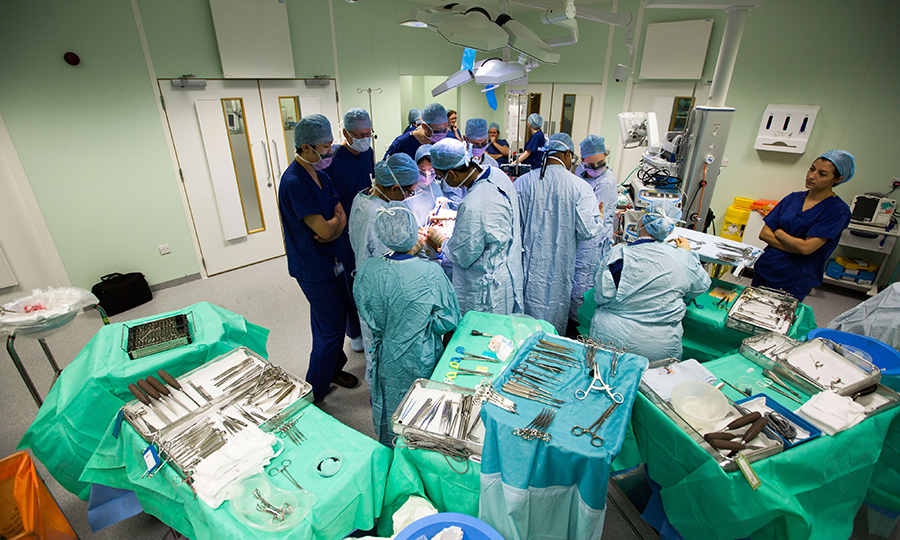Crisis in Arts Education Damages Sciences Too, Study Warns; Surgery Students ‘Can’t Sew’
A leading surgeon says that the loss of creative subjects in UK schools means students lack important tactile knowledge
A leading surgeon says that the loss of creative subjects in UK schools means students lack important tactile knowledge

The marginalization of arts subjects in UK schools is also having a damaging impact on the fields of science and medicine, a new report released by education charity the Edge Foundation says. The study warns that science students increasingly lack the ‘tactile general knowledge’ that comes from creative study.
Roger Kneebone, professor of surgical education at Imperial College London, has claimed that a lack of creative skills in schools’s core subjects means that even high-achieving medical and science students visibly struggle with more practical work. ‘An example is of a surgeon needing some dexterity and skill in sewing or stitching,’ Kneebone said. ‘It can be traced back to the sweeping out of creative subjects from the curriculum.’
The report points the finger at the government’s controversial performance measure, the English Baccalaureate, whose core subjects (English, maths, science, a foreign language and either history or geography) exclude the arts. The study has described the Ebacc as ‘not fit for purpose to tackle a 21st-century economy,’ and notes a 20% reduction of entries into creative GCSE subjects since its introduction in 2010. It calls for a reformulation of the national curriculum to prioritize creative learning. Meanwhile, the government wants 90% of GCSE students to take the Ebacc combination by 2025.
Earlier this month, Andria Zafirakou – a London-based arts and textiles teacher who was recently the recipient of the 2018 Global Teacher Prize – spoke to frieze about the crisis in arts education that the Ebacc has prompted: ‘If we’re not saying to schools that you’ve got to provide an arts curriculum, then schools aren’t going to make it happen.’ And in June of this year, frieze surveyed leading UK artists on the dangers of marginalizing the arts in schools. ‘The art room gave me a voice as well as place to experiment, fail and succeed,’ filmmaker Sam Taylor-Johnson told us. ‘And ideas are valuable in all senses – arts and culture are the foundation for some of our most important industries.’
Tristram Hunt, director of the V&A and former Labour Party politician said: ‘Creativity is not just for artists. Subjects like Design and Technology, music, art and drama are vitally important for children to develop imagination and resourcefulness, resilience, problem-solving, team-working and technical skills.’ Such skills, Hunt said, would help young people to ‘stay ahead of the robots.’




















